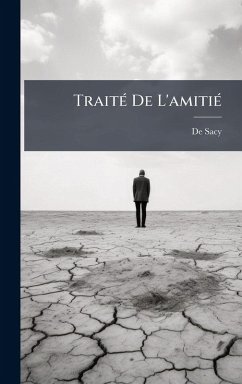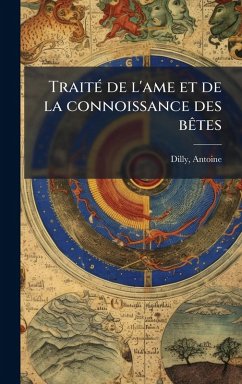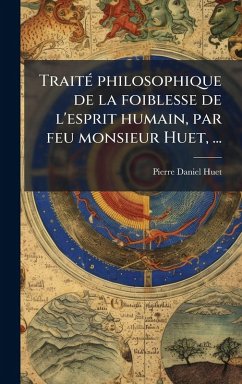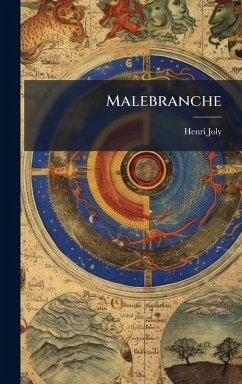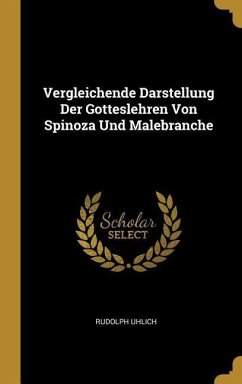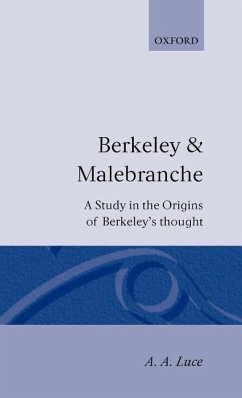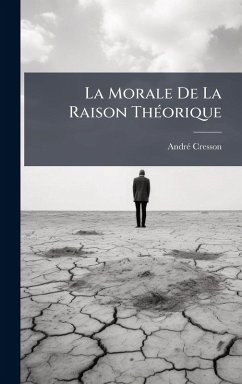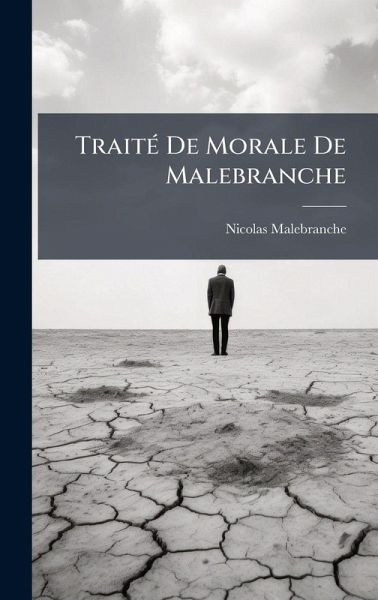
TraitÃ(c) De Morale De Malebranche
Versandkostenfrei!
Versandfertig in über 4 Wochen
32,99 €
inkl. MwSt.
Weitere Ausgaben:

PAYBACK Punkte
16 °P sammeln!
Traité De Morale De Malebranche is a seminal work by Nicolas Malebranche, the renowned 17th-century French philosopher. This treatise delves into the intricacies of moral philosophy, exploring fundamental questions about human nature, ethics, and the pursuit of virtue. Malebranche's unique perspective, influenced by both Cartesian philosophy and Augustinian theology, offers a profound exploration of the relationship between reason, passion, and divine will. In this work, Malebranche articulates his vision of morality as grounded in the love of God and the rational understanding of the natural...
Traité De Morale De Malebranche is a seminal work by Nicolas Malebranche, the renowned 17th-century French philosopher. This treatise delves into the intricacies of moral philosophy, exploring fundamental questions about human nature, ethics, and the pursuit of virtue. Malebranche's unique perspective, influenced by both Cartesian philosophy and Augustinian theology, offers a profound exploration of the relationship between reason, passion, and divine will. In this work, Malebranche articulates his vision of morality as grounded in the love of God and the rational understanding of the natural order. He provides insights into the nature of good and evil, the role of grace in moral development, and the path to achieving true happiness. A cornerstone of early modern philosophy, Traité De Morale De Malebranche continues to be studied for its historical significance and enduring philosophical insights. This work has been selected by scholars as being culturally important, and is part of the knowledge base of civilization as we know it. This work was reproduced from the original artifact, and remains as true to the original work as possible. Therefore, you will see the original copyright references, library stamps (as most of these works have been housed in our most important libraries around the world), and other notations in the work. This work is in the public domain in the United States of America, and possibly other nations. Within the United States, you may freely copy and distribute this work, as no entity (individual or corporate) has a copyright on the body of the work. As a reproduction of a historical artifact, this work may contain missing or blurred pages, poor pictures, errant marks, etc. Scholars believe, and we concur, that this work is important enough to be preserved, reproduced, and made generally available to the public. We appreciate your support of the preservation process, and thank you for being an important part of keeping this knowledge alive and relevant.



